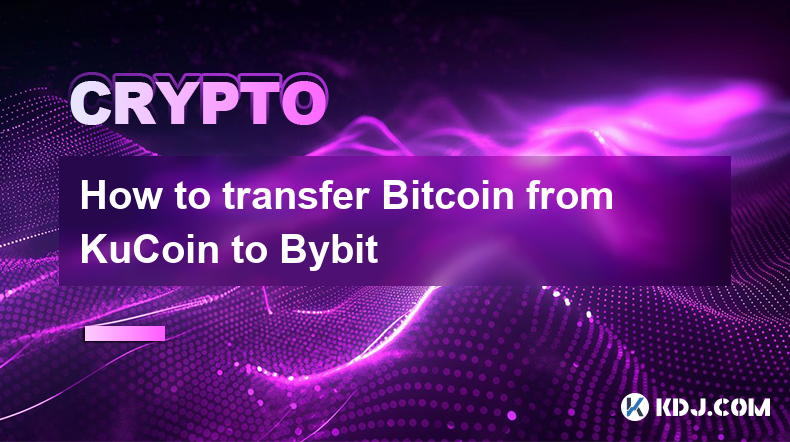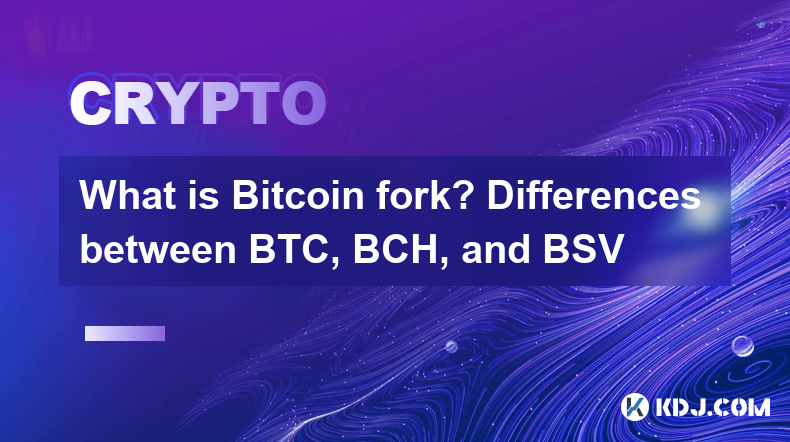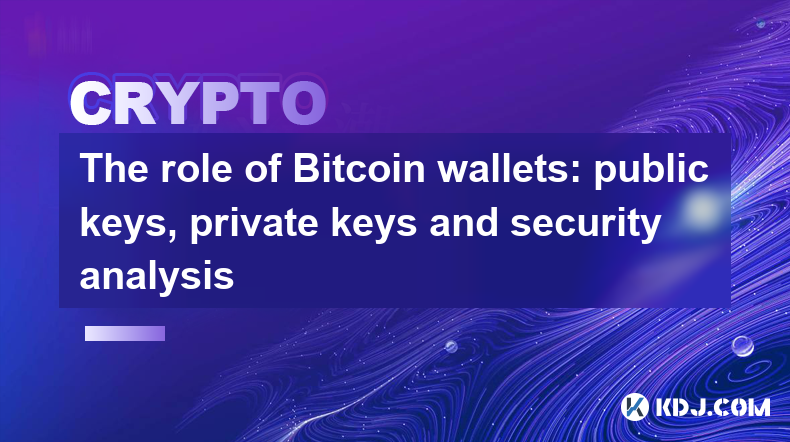-
 Bitcoin
Bitcoin $81,554.2560
4.80% -
 Ethereum
Ethereum $1,578.0926
5.66% -
 Tether USDt
Tether USDt $0.9994
0.02% -
 XRP
XRP $2.0188
9.62% -
 BNB
BNB $577.4003
2.57% -
 USDC
USDC $1.0000
-0.05% -
 Solana
Solana $113.8516
6.19% -
 Dogecoin
Dogecoin $0.1562
6.05% -
 TRON
TRON $0.2396
3.32% -
 Cardano
Cardano $0.6179
7.94% -
 UNUS SED LEO
UNUS SED LEO $9.4404
3.12% -
 Chainlink
Chainlink $12.3587
8.16% -
 Avalanche
Avalanche $18.2567
9.30% -
 Hedera
Hedera $0.1744
13.68% -
 Toncoin
Toncoin $2.9641
-1.78% -
 Stellar
Stellar $0.2356
6.20% -
 Shiba Inu
Shiba Inu $0.0...01197
7.82% -
 Sui
Sui $2.1650
10.29% -
 MANTRA
MANTRA $6.4537
3.49% -
 Bitcoin Cash
Bitcoin Cash $294.5096
7.10% -
 Litecoin
Litecoin $73.9179
2.83% -
 Polkadot
Polkadot $3.5233
2.88% -
 Dai
Dai $1.0000
0.03% -
 Bitget Token
Bitget Token $4.2604
4.62% -
 Ethena USDe
Ethena USDe $0.9988
0.05% -
 Hyperliquid
Hyperliquid $13.9158
7.36% -
 Pi
Pi $0.5959
3.25% -
 Monero
Monero $201.5235
3.15% -
 Uniswap
Uniswap $5.1341
4.88% -
 OKB
OKB $52.8872
2.02%
How to transfer Bitcoin from KuCoin to Bybit
Transferring Bitcoin from KuCoin to Bybit involves preparing accounts, obtaining a Bybit deposit address, and initiating the transfer, while being mindful of fees and security.
Apr 03, 2025 at 10:56 pm

Transferring Bitcoin from KuCoin to Bybit is a straightforward process, but it requires careful attention to detail to ensure a smooth and secure transaction. In this guide, we will walk you through the steps required to move your Bitcoin from KuCoin to Bybit, covering everything from preparing your accounts to completing the transfer. Whether you are a seasoned crypto trader or a newcomer to the space, this guide will provide you with the necessary information to execute the transfer confidently.
Before initiating the transfer, it's crucial to understand the importance of security and the potential fees involved. Both KuCoin and Bybit are reputable exchanges with robust security measures, but it's always wise to double-check your actions and ensure you are aware of any fees that may be applied during the transfer process. Let's dive into the steps required to transfer your Bitcoin successfully.
Preparing Your Accounts
Before you can transfer Bitcoin from KuCoin to Bybit, you need to ensure that both your accounts are set up and ready for the transaction. Here are the steps to prepare your accounts:
- Log into your KuCoin account: Make sure you have access to your KuCoin account and that your two-factor authentication (2FA) is enabled for added security.
- Verify your Bybit account: Ensure that your Bybit account is fully verified. This typically involves completing the KYC (Know Your Customer) process, which may require you to submit identification documents.
- Check your Bitcoin balance on KuCoin: Confirm that you have the amount of Bitcoin you wish to transfer available in your KuCoin wallet.
- Ensure Bybit supports Bitcoin deposits: Double-check that Bybit currently supports Bitcoin deposits. Most major exchanges do, but it's always good to verify.
By following these preparatory steps, you can ensure that your accounts are ready for the transfer process. This preparation will help you avoid any potential issues that could arise during the transfer.
Obtaining the Bybit Bitcoin Deposit Address
To transfer Bitcoin from KuCoin to Bybit, you need to obtain the Bitcoin deposit address from Bybit. Here's how to do it:
- Log into your Bybit account: Access your Bybit account using your credentials.
- Navigate to the deposit section: Go to the "Assets" or "Wallet" section of Bybit, and then select "Deposit."
- Select Bitcoin (BTC): From the list of available cryptocurrencies, choose Bitcoin (BTC) as the asset you want to deposit.
- Generate a new deposit address: Click on the option to generate a new Bitcoin deposit address. Bybit will provide you with a unique address for your Bitcoin deposit.
It's important to use a new address for each transaction to enhance your security. Once you have the Bybit Bitcoin deposit address, you can proceed to the next step of initiating the transfer from KuCoin.
Initiating the Transfer from KuCoin
Now that you have the Bybit Bitcoin deposit address, you can initiate the transfer from KuCoin. Follow these steps carefully:
- Log into your KuCoin account: Access your KuCoin account using your credentials.
- Navigate to the withdrawal section: Go to the "Assets" or "Wallet" section of KuCoin, and then select "Withdraw."
- Select Bitcoin (BTC): From the list of available cryptocurrencies, choose Bitcoin (BTC) as the asset you want to withdraw.
- Enter the Bybit Bitcoin deposit address: In the withdrawal form, enter the Bitcoin deposit address you obtained from Bybit.
- Specify the amount of Bitcoin to transfer: Enter the amount of Bitcoin you wish to transfer to Bybit. Double-check the amount to ensure accuracy.
- Review the transaction details: Carefully review the transaction details, including the destination address and the amount of Bitcoin to be transferred.
- Confirm the withdrawal: Once you are satisfied with the details, confirm the withdrawal. You may be prompted to enter your 2FA code for added security.
After confirming the withdrawal, KuCoin will process the transaction, and your Bitcoin will be on its way to Bybit. The transfer time can vary depending on the Bitcoin network's congestion, but it typically takes a few minutes to an hour.
Monitoring the Transfer
Once you have initiated the transfer from KuCoin, it's important to monitor the transaction to ensure it reaches Bybit successfully. Here's how to do it:
- Check the transaction status on KuCoin: After initiating the withdrawal, you can check the status of the transaction on KuCoin. Look for the transaction ID or hash, which you can use to track the transfer.
- Use a blockchain explorer: Enter the transaction ID or hash into a blockchain explorer like Blockchain.com or Blockchair to monitor the progress of your Bitcoin transfer. The explorer will show you the current status of the transaction and when it is expected to be confirmed.
- Verify the deposit on Bybit: Once the transaction is confirmed on the Bitcoin network, check your Bybit account to ensure the Bitcoin has been credited to your wallet. This may take some time, depending on the number of confirmations required by Bybit.
By monitoring the transfer, you can ensure that your Bitcoin reaches Bybit safely and that there are no issues with the transaction. If you encounter any problems, you can take appropriate action, such as contacting customer support.
Understanding Transfer Fees
When transferring Bitcoin from KuCoin to Bybit, you need to be aware of the potential fees involved. Here's a breakdown of the fees you might encounter:
- KuCoin withdrawal fee: KuCoin charges a fee for withdrawing Bitcoin from their platform. This fee is typically a fixed amount in BTC and can vary based on network conditions. You can check the current withdrawal fee on KuCoin's fee page.
- Bitcoin network fee: In addition to the KuCoin withdrawal fee, you will also need to pay a network fee for the Bitcoin transaction. This fee is paid to miners who process and confirm the transaction on the Bitcoin blockchain. The network fee can vary based on the congestion of the network and the priority you set for the transaction.
- Bybit deposit fee: Bybit does not typically charge a fee for depositing Bitcoin into their platform. However, it's always a good idea to check Bybit's fee page to confirm their current policy.
Understanding these fees will help you calculate the total cost of transferring your Bitcoin from KuCoin to Bybit. Always factor in these fees when planning your transfers to avoid any surprises.
Security Considerations
Security is paramount when transferring Bitcoin between exchanges. Here are some key security considerations to keep in mind:
- Use strong passwords and 2FA: Ensure that both your KuCoin and Bybit accounts are protected with strong, unique passwords and that two-factor authentication (2FA) is enabled. This adds an extra layer of security to your accounts.
- Verify the deposit address: Double-check the Bybit Bitcoin deposit address before initiating the transfer from KuCoin. A single mistake in the address can result in the loss of your funds.
- Be cautious of phishing attempts: Always access KuCoin and Bybit through their official websites or apps. Be wary of phishing emails or messages that may try to trick you into revealing your credentials or private information.
- Monitor your accounts: Regularly check your KuCoin and Bybit accounts for any unauthorized activity. If you notice anything suspicious, take immediate action by contacting customer support.
By following these security best practices, you can minimize the risk of losing your Bitcoin during the transfer process. Always prioritize security to protect your assets.
Common Questions and Answers
Q: How long does it take to transfer Bitcoin from KuCoin to Bybit?
A: The transfer time can vary depending on the congestion of the Bitcoin network. Typically, it takes a few minutes to an hour for the transaction to be confirmed and for the Bitcoin to appear in your Bybit account.
Q: What fees are involved in transferring Bitcoin from KuCoin to Bybit?
A: You may encounter a withdrawal fee from KuCoin, a network fee for the Bitcoin transaction, and potentially a deposit fee from Bybit (though Bybit typically does not charge for Bitcoin deposits). Always check the current fee structure on both platforms before initiating the transfer.
Q: Is it safe to transfer Bitcoin between exchanges?
A: Yes, it can be safe if you follow proper security measures. Ensure that both your KuCoin and Bybit accounts are secure, double-check the deposit address, and be cautious of phishing attempts. Monitoring your accounts regularly can also help you detect any unauthorized activity.
Q: Can I transfer Bitcoin from KuCoin to Bybit without verification?
A: No, you typically need to have a verified account on Bybit to deposit Bitcoin. Bybit requires users to complete the KYC process, which involves submitting identification documents, to ensure compliance with regulatory standards.
Q: What should I do if my Bitcoin transfer from KuCoin to Bybit is delayed?
A: If your transfer is delayed, first check the transaction status on KuCoin and use a blockchain explorer to monitor the transaction. If the transaction is confirmed on the blockchain but not credited to your Bybit account, contact Bybit's customer support for assistance.
Disclaimer:info@kdj.com
The information provided is not trading advice. kdj.com does not assume any responsibility for any investments made based on the information provided in this article. Cryptocurrencies are highly volatile and it is highly recommended that you invest with caution after thorough research!
If you believe that the content used on this website infringes your copyright, please contact us immediately (info@kdj.com) and we will delete it promptly.
- The crypto market is heating up, and a handful of altcoins are positioned to dominate the next bull run.
- 2025-04-10 22:35:12
- As the broader crypto market continues to remain trapped in the ongoing downtrend, some assets have gained the limelight due to their outstanding performance. Today, data from Phoenix Group highlighted top assets that are in the accumulation zone, pointed
- 2025-04-10 22:35:12
- Bitcoin Pepe: #1 Cheap crypto to buy to create meme economy on BTC
- 2025-04-10 22:30:12
- Bitcoin Recrosses the $100,000 Mark as Ethereum Follows with a 4% Rise
- 2025-04-10 22:30:12
- As Islamic finance nears $12.5 billion, Shariah-compliant crypto projects aim to serve two billion Muslims
- 2025-04-10 22:25:12
- The Darkness frontman Justin Hawkins shared his thoughts on Sleep Token's new song ‘Caramel’
- 2025-04-10 22:25:12
Related knowledge

What is Bitcoin halving? Analysis of the impact on prices
Apr 09,2025 at 01:14pm
Bitcoin halving is a pivotal event in the cryptocurrency world that occurs approximately every four years, or every 210,000 blocks. The event is designed to reduce the rate at which new bitcoins are generated, thereby controlling inflation and increasing scarcity over time. During a halving, the reward that miners receive for successfully adding a block...

What to do if Bitcoin is stolen? Security protection and recovery possibilities
Apr 09,2025 at 03:42pm
If your Bitcoin is stolen, it can be a distressing experience, but there are steps you can take to protect your remaining assets and attempt to recover your lost funds. This article will guide you through the process of securing your Bitcoin and exploring recovery possibilities. Immediate Actions After Bitcoin TheftThe moment you realize your Bitcoin ha...

How to avoid Bitcoin investment scams? Common scams revealed
Apr 10,2025 at 05:14pm
Introduction to Bitcoin Investment ScamsBitcoin and other cryptocurrencies have become increasingly popular investment options, attracting both seasoned investors and newcomers alike. However, with the rise in popularity, there has also been a surge in Bitcoin investment scams. These scams can range from Ponzi schemes to fake exchanges and fraudulent in...

What is Bitcoin fork? Differences between BTC, BCH, and BSV
Apr 10,2025 at 02:21am
A Bitcoin fork refers to a change in the underlying protocol of the Bitcoin blockchain, which results in a divergence into two separate versions of the blockchain. This can happen as a result of a disagreement within the community about the direction of the cryptocurrency, or to introduce new features or improvements. There are two main types of forks: ...

The role of Bitcoin wallets: public keys, private keys and security analysis
Apr 09,2025 at 03:00am
Bitcoin wallets play a crucial role in the world of cryptocurrency, serving as the gateway to securely store, send, and receive Bitcoin. Understanding the intricacies of Bitcoin wallets, particularly the concepts of public keys, private keys, and security analysis, is essential for anyone looking to navigate the cryptocurrency landscape safely and effec...

Bitcoin's consensus mechanism: How does proof of work (PoW) work?
Apr 10,2025 at 04:14pm
Bitcoin's consensus mechanism is a crucial aspect of its operation, enabling the decentralized network to agree on the state of the blockchain. At the heart of this mechanism lies the Proof of Work (PoW) protocol, which not only secures the network but also ensures that new bitcoins are minted fairly. In this article, we will delve into the intricacies ...

What is Bitcoin halving? Analysis of the impact on prices
Apr 09,2025 at 01:14pm
Bitcoin halving is a pivotal event in the cryptocurrency world that occurs approximately every four years, or every 210,000 blocks. The event is designed to reduce the rate at which new bitcoins are generated, thereby controlling inflation and increasing scarcity over time. During a halving, the reward that miners receive for successfully adding a block...

What to do if Bitcoin is stolen? Security protection and recovery possibilities
Apr 09,2025 at 03:42pm
If your Bitcoin is stolen, it can be a distressing experience, but there are steps you can take to protect your remaining assets and attempt to recover your lost funds. This article will guide you through the process of securing your Bitcoin and exploring recovery possibilities. Immediate Actions After Bitcoin TheftThe moment you realize your Bitcoin ha...

How to avoid Bitcoin investment scams? Common scams revealed
Apr 10,2025 at 05:14pm
Introduction to Bitcoin Investment ScamsBitcoin and other cryptocurrencies have become increasingly popular investment options, attracting both seasoned investors and newcomers alike. However, with the rise in popularity, there has also been a surge in Bitcoin investment scams. These scams can range from Ponzi schemes to fake exchanges and fraudulent in...

What is Bitcoin fork? Differences between BTC, BCH, and BSV
Apr 10,2025 at 02:21am
A Bitcoin fork refers to a change in the underlying protocol of the Bitcoin blockchain, which results in a divergence into two separate versions of the blockchain. This can happen as a result of a disagreement within the community about the direction of the cryptocurrency, or to introduce new features or improvements. There are two main types of forks: ...

The role of Bitcoin wallets: public keys, private keys and security analysis
Apr 09,2025 at 03:00am
Bitcoin wallets play a crucial role in the world of cryptocurrency, serving as the gateway to securely store, send, and receive Bitcoin. Understanding the intricacies of Bitcoin wallets, particularly the concepts of public keys, private keys, and security analysis, is essential for anyone looking to navigate the cryptocurrency landscape safely and effec...

Bitcoin's consensus mechanism: How does proof of work (PoW) work?
Apr 10,2025 at 04:14pm
Bitcoin's consensus mechanism is a crucial aspect of its operation, enabling the decentralized network to agree on the state of the blockchain. At the heart of this mechanism lies the Proof of Work (PoW) protocol, which not only secures the network but also ensures that new bitcoins are minted fairly. In this article, we will delve into the intricacies ...
See all articles





















































































